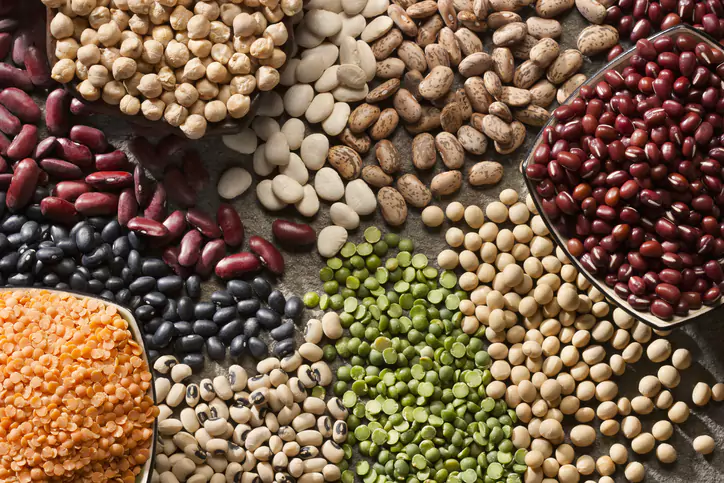
UP TO 40% OFF SITEWIDE






ARE WEIGHT LOSS & INSULIN RESISTANCE RELATED?


Table of Contents
- WEIGHT LOSS AND INSULIN RESISTANCE. ENEMIES OR FRIENDS?
- What Are The Signs and Symptoms Of Insulin Resistance?
- What Exactly Is Insulin Resistance?
- What is Insulin, And How Does It Causes Weight Gain?
- How Is Insulin Resistance Diagnosed?
- How Does Diabetes Harm Your Body?
- How Does Weight Loss Improve Insulin Resistance?
- Weight Loss Advice From A Weight Loss Specialist
- What Type and How Much Exercise?
- Best Insulin Resistance Reversal Strategies
- Summary
- About the author
WEIGHT LOSS AND INSULIN RESISTANCE. ENEMIES OR FRIENDS?
Weight gain leads to insulin resistance. Insulin resistance leads to type 2 diabetes. Insulin resistance occurs when the body is no longer sensitive to insulin and cannot properly utilize it. The body may eventually stop producing this hormone as a result of insulin resistance. So best is to go for weight loss to stop insulin resistance in the first place.
What Are The Signs and Symptoms Of Insulin Resistance?
There are no signs or symptoms of diabetes or insulin resistance. Once it begins, and blood sugar levels are still normal. Some people have vague symptoms such as fatigue at this stage. To learn more about the signs and symptoms of insulin resistance in detail, click here.
Obesity appears to increase the risk of insulin resistance and diabetes. As a result, losing weight may be very helpful in the prevention of these conditions. More than 90 million Americans had prediabetes in 2020, while more than 30 million had diabetes.
The latter group's majority had type 2 diabetes caused by insulin resistance. This article examines the relationship between insulin resistance and weight loss. We will discuss how losing weight can help prevent or reverse insulin resistance or even diabetes. For more in-depth coverage of insulin resistance and prediabetes, click here.
What Exactly Is Insulin Resistance?
Losing weight will definitely help you improve their insulin sensitivity. In my diabetes practice, we see that clearly all the time. To understand how insulin works, we must first understand how the body takes in and uses energy.
The cells in the body require energy to perform all of their functions, including walking, thinking, and breathing, digesting. Your cells will die if they lack energy. The body absorbs nutrients from food, including carbohydrates, when you eat. It converts carbs into blood glucose, or sugar, during digestion, and this enters the body's cells to provide energy.
What is Insulin, And How Does It Causes Weight Gain?
Insulin is a hormone produced by the pancreas. It allows blood sugar to move from the blood into the cells of the body. Some of it is good, but too much is detrimental. Too much insulin is a result of insulin resistance, and insulin resistance is the biggest factor against weight loss. Diabetes begins with the development of insulin resistance as well.
Insulin resistance occurs when your body cells stop responding normally to insulin. They begin to lose their ability to absorb glucose as their insulin sensitivity declines. In response, the pancreas increases insulin production to allow glucose to continue entering cells. This will help at first. There will be energy in the cells, and blood sugar levels will not rise.
However, since fat cells are more responsive to insulin than muscle cells, insulin resistance leads to weight gain or the inability to lose weight. That is what I tell my patients when they ask why I cannot lose weight. However, as the cells' insulin resistance increases, the pancreas must produce more and more insulin.
It eventually stops producing enough insulin to move glucose from the blood into the cells. Blood sugar levels at this point are high enough for a doctor to diagnose prediabetes. The following are the normal fasting blood sugar levels and fasting blood sugar for prediabetes and diabetes:
- Standard: less than 100 milligrams per deciliter (mg/dl).
- Prediabetes: 100-125 mg/dl
- Diabetes: 126 mg/dl or higher
Your fasting blood glucose level can be tested by a doctor, or you can check your glucose levels at home. Doctors' lab test is typically more reliable. Blood glucose testing kits for home use can be purchased online or at your local Walmart store for inexpensive supplies. Insulin resistance does cause vague symptoms at first such as fatigue, but more serious health problems will develop over time if no action is taken. Because there are no symptoms, any action taken now must be preventive.
How Is Insulin Resistance Diagnosed?
During routine screening, you may discover that they have insulin resistance. For example, high triglycerides, low HDL, elevated fasting insulin levels, and wide abdominal circumference are clinical signs of insulin resistance. You may have insulin resistance without realizing it. Even if your blood sugar levels are normal, you should take preventive measures to avoid diabetes. Insulin resistance is mostly caused by:
- Genetic predisposition
- Being overweight or obese
- Extra fat around the abdomen, even if you have a healthy BMI (BMI)
- Lack of physical activity
- Diet high in unprocessed carbohydrates, such as sugar and white flour
Taking action early on can help prevent or reverse prediabetes. If you do not take action, your body will eventually be unable to produce enough insulin, resulting in excess glucose in the blood, which is diabetes.
How Does Diabetes Harm Your Body?
As this glucose circulates throughout the body, it can cause damage to blood vessels, nerves, and organs, leading to serious and life-threatening complications. Benfotiamine and alpha lipoic acid are some natural substances that can help prevent diabetes complications at the early stages. We will talk more in-depth about that in the following sections.
How Does Weight Loss Improve Insulin Resistance?
According to research, a 5-7 percent weight loss can reduce the risk of diabetes by 58 percent in people who are predisposed to the disease. This is a 12-16 pound (lb) loss for someone weighing 220 pounds (lb). Losing weight and maintaining a healthy weight can help you with diabetes or at high risk of diabetes and reduce the risk of insulin resistance, prediabetes, diabetes, and health complications.
Weight Loss Advice From A Weight Loss Specialist

Dr. Ahmet Ergin- Weight Loss Specialist
People with insulin resistance, prediabetes, or a high risk of diabetes require a long-term dietary and lifestyle strategy to protect their health. Insulin resistance will not be reduced by a "crash diet." You need to obtain a healthy lifestyle, surround yourself with health-conscious friends, and supplement your diet with natural health protectors such as berberine or, even better, dihydroberberine, Ceylon cinnamon, and alpha lipoic acid, benfotiamine, and B complex vitamins. Visit sugarmds.com for doctor-formulated products to supplement your healthy lifestyle.
What Type and How Much Exercise?
The National Diabetes Prevention Program of the Centers for Disease Control and Prevention emphasizes eating more healthful foods and engaging in at least 150 minutes of physical activity per week. I recommend daily exercise to make it a routine rather than a chore.
These strategies can assist you in losing weight and developing healthy habits for life. Three of the most important factors in a sustainable, healthful diet are eating plenty of fresh fruits and vegetables, being mindful of portion sizes, and limiting carbohydrate intake.
Otherwise, no exercise will be of benefit with a bad diet. We will talk more about exercise below, so keep reading. Let's talk more about diet first. The DASH eating plan, developed by the National Institutes of Health (NIH), is a long-term, healthy diet. DASH is an abbreviation for Dietary Approaches to Stop Hypertension. The diet does not emphasize calorie restriction but rather encourages people to eat:
- Controlled portions of fruits and vegetables
- Low-fat dairy items. For people who are on keto or high-fat diets, high fat option is ok as long as it does not lead to weight gain.
- Seeds and nuts
- Legumes and pulses
We advise people to avoid empty carbs and sugars and to eat more nutrient-dense foods and heart-healthy proteins. The DASH diet is better suited to long-term use than a crash diet or many calorie-controlled diets. This diet also contains a lot of fiber, which helps manage blood sugar levels by slowing carbohydrate absorption and lowering the need for insulin. Learn more about how diet can help with insulin resistance by clicking here.
Best Insulin Resistance Reversal Strategies
Weight loss and a healthy diet are important ways to reduce the risk of developing insulin resistance, but combining them with other strategies will reduce the risk even more.
-
Intermittent fasting
Intermittent fasting is an eating pattern that alternates between periods of fasting and eating. It does not specify which foods you should eat but rather when you should eat them. People who practice intermittent fasting generally eat their meals within a 6-8 hour window during the day and fast for the remaining hours.
There are many different types of intermittent fasting, but one of the most common is the 16:8 method, which involves fasting for 16 hours and eating all your meals within an 8-hour window. Research has shown that intermittent fasting can help to improve insulin resistance, a condition in which your cells develop a resistance to the hormone insulin.
Insulin resistance can lead to type 2 diabetes, heart disease, and other health problems. While more research is needed to understand how exactly intermittent fasting helps improve insulin resistance, it is thought to promote weight loss, reduce inflammation, and improve cell function.
-
Smoking cessation
According to some research, regular use of tobacco products may increase the risk of diabetes and insulin resistance. Others, on the other hand, have found no evidence of a direct link. A 2016 study of nearly 6,000 people concluded that while there may not be a direct link between smoking and insulin resistance, it may still play a role in the development of diabetes when combined with other factors.
On the other hand, smoking is a risk factor for heart disease, lung infections, and other health problems that are also complications of diabetes. Smoking can exacerbate these problems as well. As a result, anyone with insulin resistance or a high risk of diabetes should quit smoking if possible and avoid secondhand smoke as much as possible. A doctor can assist you in locating resources and strategies to help them quit smoking.
-
Physical Exercise
Because muscles use up glucose from the bloodstream and do not require insulin, regular exercise can help improve insulin resistance. Adults should engage in at least 150 minutes of moderate-intensity aerobic exercise or 75 minutes of vigorous-intensity aerobic exercise per week, according to the Physical Activity Guidelines for Americans.
People should combine cardiovascular exercise with muscle-building exercises and stretching for the best results. Before starting a new exercise program, it is best to consult with a doctor, especially if the person has not been physically active in a long time.
-
D and B Complex Vitamin
A lack of vitamin D is common in people with type 2 diabetes. According to some studies, people with diabetes are more likely to have low vitamin D levels. The Office of Dietary Supplements recommends that people aged 1 to 70 consume 600 international units (IU) of vitamin D from dietary sources daily. While sunlight is by far the best source of vitamin D, other dietary sources include:
- Fatty fish
- Enriched milk and dairy products in moderation
- Egg whites

In addition, B complex vitamins are essential for human health, and recent research has shown that they can also help to lower insulin resistance. Insulin resistance is a condition in which the body's cells become less responsive to the hormone insulin, and it is a major contributor to type 2 diabetes. B vitamins play an important role in metabolism, and they have been shown to improve insulin sensitivity.
In one study, participants who took a daily supplement of B vitamins had significantly lower levels of insulin resistance than those who did not. The results of this study suggest that B complex vitamins may be an effective treatment for type 2 diabetes. SugarMD Neuropathy support offers D and B complex vitamins as well as benfotiamine, alpha lipoic acid, and L- carnitine.
-
Sleep
Inadequate or poor-quality sleep can increase the risk of insulin resistance and type 2 diabetes. According to the authors of a 2015 study, sleep is "an additional lifestyle behavior, important for metabolic health and energy homeostasis" for people with diabetes. Getting enough sleep each day can help regulate hunger hormones and lower the risk of glucose metabolism dysfunction.
-
Medications And Supplements

If you are struggling with insulin resistance, you are not alone. An estimated 25% of Americans have this condition, which occurs when the body becomes less sensitive to insulin and is unable to properly regulate blood sugar levels. While there is no cure for insulin resistance, making lifestyle changes and medications such as metformin help.
For those who do not take pharmaceutical agents, using SugarMD products can help tremendously. For example, our super berberine supplement is designed to support healthy blood sugar levels and improve insulin sensitivity. In addition, our products are made with natural ingredients and formulated by a specialty physician. If you are ready to take control of your health, give SugarMD a try today. You won't be disappointed.
Summary
A diagnosis of insulin resistance does not automatically imply diabetes, but diabetes can develop if left untreated. Achieving and maintaining a healthy weight can lower your risk of developing type 2 diabetes. People who have insulin resistance, prediabetes, or diabetes should consult with their doctor and or life coach at sugarmds.com about an appropriate weight-loss plan.
Healthy eating habits are essential for losing weight, maintaining a healthy weight, and preventing insulin resistance. It can be beneficial to connect with other people who are dealing with similar issues. Also, using a totally free Diabetes/Insulin Resistance app like the SugarMD app can help tremendously to achieve your goals. Download today.
About the author
Dr. Ahmet Ergin is the author of The Ultimate Diabetes Book and the Founder of the SugarMD youtube channel. He practices in Port Saint Lucie, FL as an endocrinologist physician. Who is Dr. Ergin? Dr. Ahmet Ergin is an endocrinologist with a particular interest and passion for diabetes care.
Dr. Ergin earned his medical degree with honors at Marmara University School of Medicine in Istanbul, Turkey. Then, he completed his internal medicine residency and endocrinology fellowship at Cleveland Clinic in Cleveland, Ohio. He is a board-certified physician in Internal Medicine and Endocrinology, diabetes, and metabolism. He is also a certified diabetes education specialist.
Disclaimer: Any information on diseases and treatments available on this website is intended for general guidance only and must never be considered a substitute for the advice provided by your doctor or other qualified healthcare professional. Always seek the advice of your physician or other qualified health care professional with questions you may have regarding your medical condition.
Written By Dr. Ahmet Ergin
466 total articles
Meet Dr. Ahmet Ergin, a highly skilled and dedicated endocrinologist with a passion for diabetes care. Dr. Ergin earned his medical degree with honors from Marmara University in Istanbul. He completed internal medicine residency and endocrinology fellowship at Cleveland Clinic. Dr. Ergin is board-certified in Internal Medicine, Endocrinology, Diabetes, and Metabolism due to his vast medical expertise. He's a certified diabetes educator, author of “The Ultimate Diabetes Book,” and founder of “the SugarMD YouTube channel.” Dr. Ergin offers exceptional diabetes care to his patients in Port Saint Lucie, FL, helping them manage effectively. For a closer look into his insights and experiences, connect with Dr. Ahmet Ergin on LinkedIn, Instagram, and YouTube.”
Disclaimer: These statements have not been evaluated by the Food and Drug Administration. Information on this website isn't intended to treat, cure or prevent any disease. Discuss with your doctor and do not self-treat.
Products















